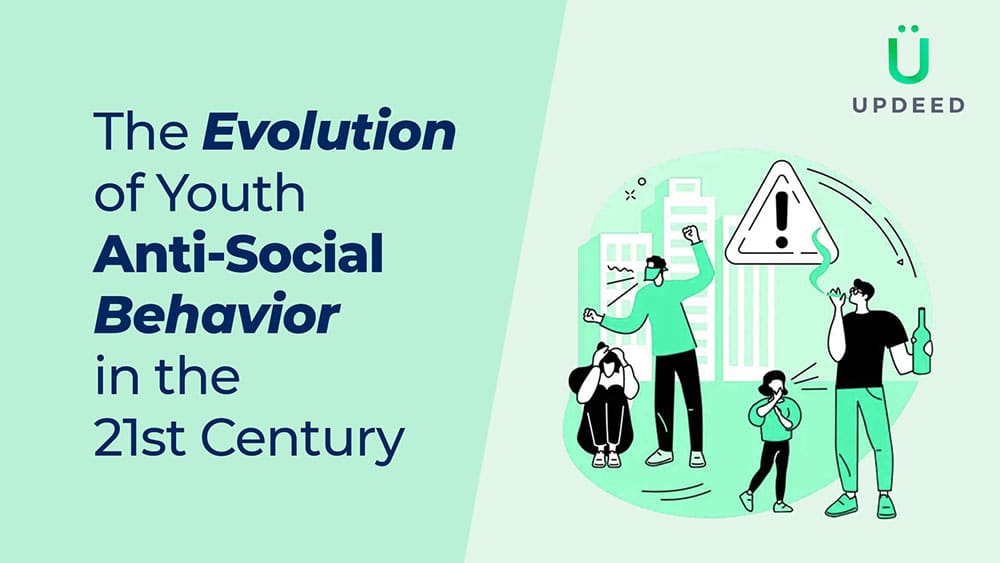The Evolution of Youth Anti-Social Behavior in the 21st Century
The rise of social media platforms, such as Facebook, Instagram, and Twitter, has revolutionized how we connect and share our lives. However, it has also created a culture of comparison, validation-seeking, and a constant need for affirmation.
This has contributed to feelings of inadequacy and depression among some young people, further fueling anti-social behavior in the form of cyberbullying, online harassment, and even online addiction.
Moreover, social media has created an environment where the line between reality and the idealized digital persona becomes blurred. The pressure to present a curated version of one’s life can lead to authenticity being sacrificed for likes and followers. In this context, some youth may resort to anti-social behavior to maintain their online image, even if it means engaging in activities they would not typically pursue offline.

Feelings of isolation among young people
While the digital age has connected people in unprecedented ways, it has also paradoxically increased feelings of isolation among young people. Spending hours glued to screens and interacting more with pixels than people has led to a decline in face-to-face social skills and a sense of disconnection from the real world.
This isolation can foster anti-social behaviors as young people struggle to relate to their peers or express their emotions constructively.
The pandemic, which struck in the early 21st century, exacerbated this isolation. Lockdowns and social distancing measures forced many young people into prolonged physical separation from their friends and support networks. The resulting mental health challenges have been a breeding ground for anti-social behavior, as some youths grapple with the emotional toll of isolation.
Amid all this, parents play a pivotal role in shaping their children’s behavior, but they, too, face new challenges in the 21st century. The digital age has forced parents to navigate a complex terrain of online threats, screen time management, and monitoring of their children’s online activities.
Effective parenting now requires a digital literacy that previous generations never had to contend with.
Furthermore, the changing nature of work and family dynamics has influenced youth anti-social behavior. Many parents work long hours or multiple jobs, leaving less time for family interactions and guidance. In some cases, this has resulted in a lack of parental supervision, contributing to youth delinquency.
Addressing issues
Addressing the evolving landscape of youth anti-social behavior necessitates a multifaceted approach. Schools, parents, and communities must collaborate to create an environment that fosters positive social development and emotional well-being.
Here are some strategies:
- Digital literacy education: Incorporate digital literacy programs into school curricula to teach young people how to navigate the digital world responsibly, including recognizing and combating cyberbullying.
- Mental health support: Increase access to mental health resources and destigmatize seeking help for mental health issues, often intertwined with anti-social behavior.
- Parental engagement: Encourage parents to stay actively engaged in their children’s online and offline lives and provide support and guidance in managing digital devices and social media use.
- Community programs: Establish community programs that provide safe spaces for young people to interact, learn, and grow, fostering positive social connections and combating isolation.
- Legislation and regulation: Develop and enforce laws and regulations that address online harassment and cyberbullying, holding individuals accountable for their actions in the digital realm.
In conclusion, anti-social behavior among youth has evolved significantly in the 21st century due to the influence of technology, social media, and changing family dynamics.
To combat this issue effectively, we must adopt a holistic approach that combines education, mental health support, parental involvement, community engagement, and legal measures. Only by addressing the multifaceted nature of this problem can we hope to create a safer and more harmonious environment for the youth of today and tomorrow.
Ready to make a positive impact in the world?
UPDEED is the place for you. Our free and open platform is filled with inspiring stories from individuals and organizations who are making a difference in their communities and beyond. Connect and collaborate with like-minded individuals from around the globe on UPDEED, and discover your own potential to create meaningful change. Join our community and make a difference.





